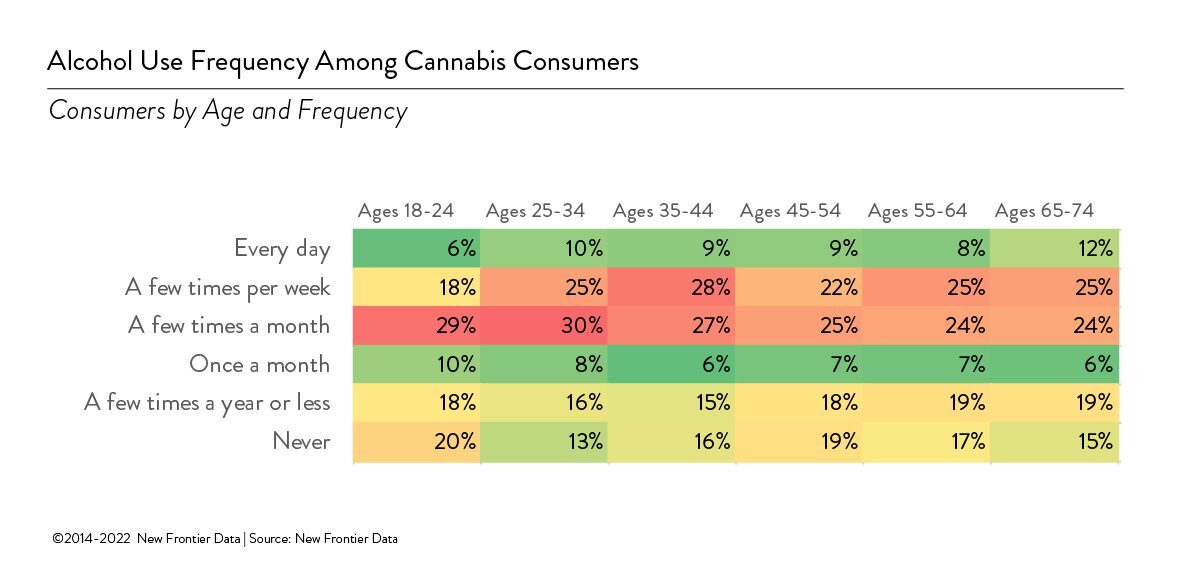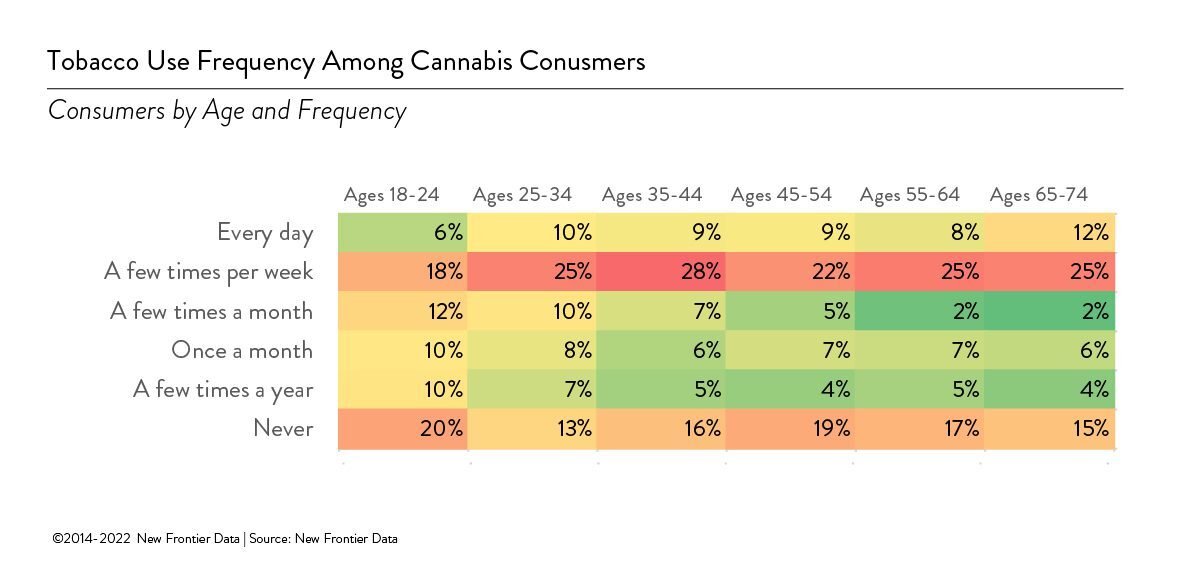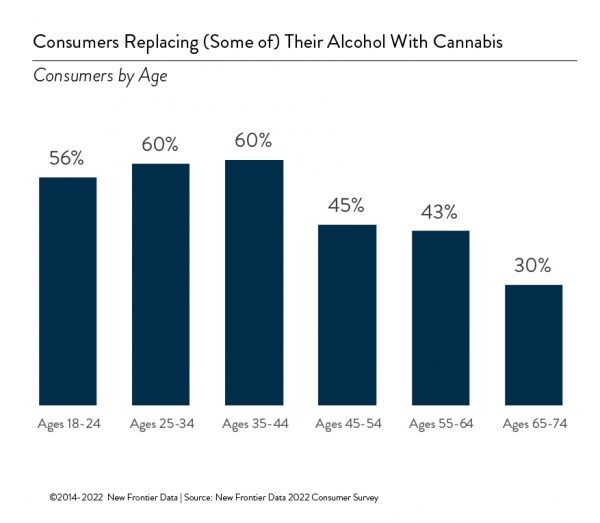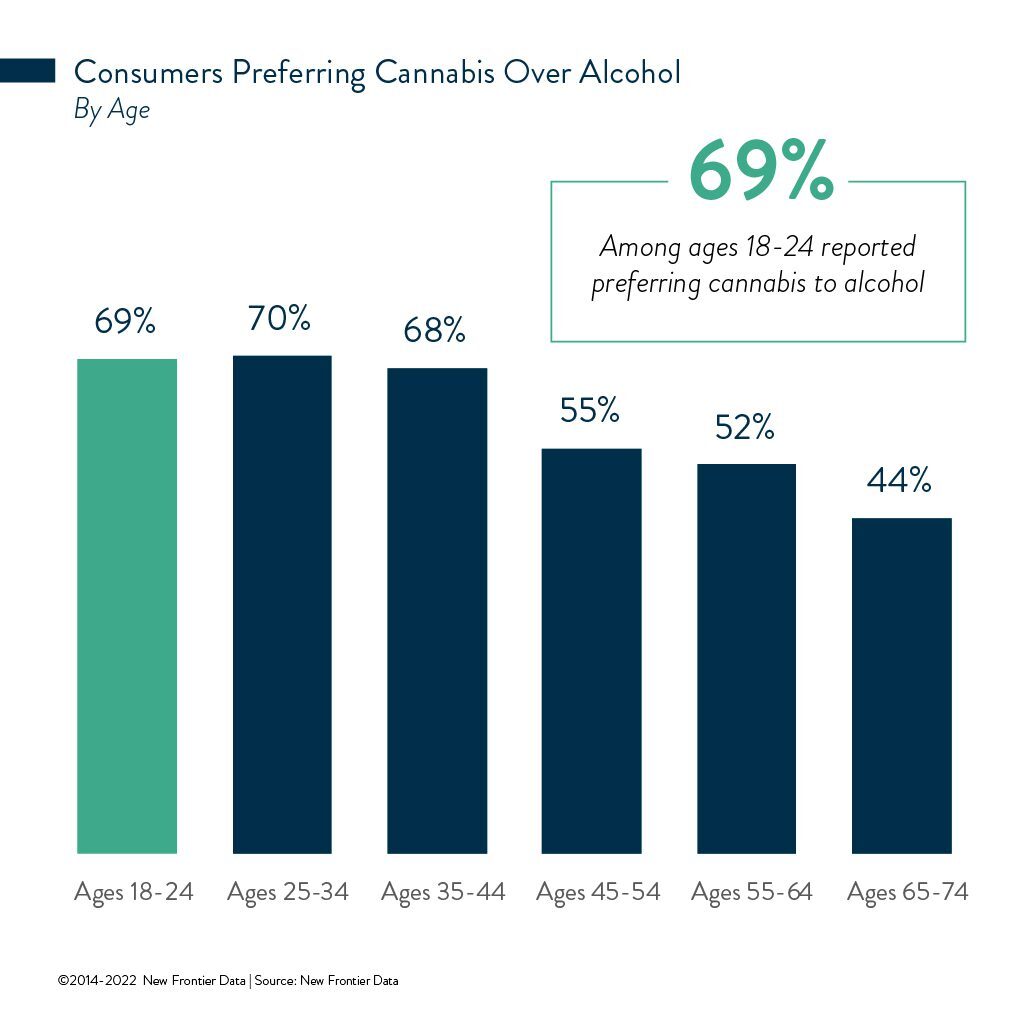The Kids Are Alright: Tobacco, Alcohol and Cannabis Use Among Gen Z

New Frontier Data and Treez Partner to Empower Cannabis Retailers in a Hyper-Growth Market
May 19, 2022
Smart and New Frontier Data Partner to Provide Advertisers Access to 160M+ US Cannabis Consumer Profiles
May 31, 2022By Amanda Reiman, Ph.D., MSW, Vice President of Public Policy Research, New Frontier Data
Among the most common objections raised by opponents of cannabis legalization is youth access. Indeed, keeping cannabis out of the hands of minors has for decades been touted as a main reason to maintain its prohibition. When Colorado and Washington legalized cannabis for adult use in 2012, naysayers immediately sounded dire warnings of sharp increases in use by kids. Today’s Gen Zers (i.e., those born between 1997 and 2012) were between birth or age 15 when the first states legalized cannabis. A decade later, we have a fair sense of how things turned out. So, what have we learned about their cannabis use and its relationship to some other consumption behaviors?
Gen Z likes cannabis, but not until they are old enough.
According to the New Frontier Data Consumer Survey, between 2017 and 2020 past-month cannabis consumption dropped by 8% among younger Gen Zers (ages 18-20), but increased by 11% for older ones (ages 21-25). By comparison, the largest increase meanwhile was seen among some Baby Boomers (specifically ages 60-64), whose monthly use increased by 56%.
Gen Z is not really into alcohol or tobacco.
A recent study published in the Journal of Adolescent Health by researchers at the University of Washington looked at alcohol and tobacco consumption among Gen Zers in Washington during 2014-2019. Those findings saw declines in each past-month alcohol use, heavy episodic drinking, and cigarette use during that period. It is possible that the reductions were related to an overall disinterest in alcohol and tobacco among individuals in Gen Z, an observation supported in the New Frontier Data Consumer Survey.


Cannabis consumers aged 18-24 were most likely to say they never drank alcohol (19.7%), and the least likely to say that they drank every day (5.9%). They were also the most likely (among those under age 55) to say that they never used tobacco (39.3%), and the least likely (among those under 65) to say that they used it every day (26.3%). Do those responses suggest a decided effort being made among that group to replace alcohol with cannabis?
Gen Z is consciously choosing cannabis over alcohol, and they are not alone.
A 2009 study published in the Harm Reduction Journal began an inquiry to the use of cannabis as a substitute for alcohol. In that study of 350 medical cannabis patients, 40% reported using cannabis as a substitute for alcohol. As again reflected in the New Frontier Consumer Survey, that behavioral trend has continued, and not just among Gen Zers.

More than two-thirds (69%) among ages 18-24 reported preferring cannabis to alcohol, compared to nearly 70% among ages 25-34, 68% among ages 35-44, 55% among ages 45-54, 52% among ages 55-64, and 44% among ages 65-74.
Gen Zers do not engage so much as older consumers in replacing alcohol with cannabis.
Among ages 18-24, more than half (56%) reported replacing some of their alcohol with cannabis, compared to nearly 60% among ages 25-34, and more than 60% among 35-44-year-olds. Those rates declined further among older cohorts, from over 44% among ages 45-54, to about 43% among ages 55-64, and nearly 30% among ages 65-74.
Since the 18–24-year-old group reported being more likely to abstain from alcohol in the first place, that behavior may be reflected in the outcome.
The Takeaway:
The numbers suggest that young people are learning to navigate the legal cannabis landscape without adopting compulsive, increased use, and may also be less likely to consume either alcohol or tobacco, thereby making cannabis their drug of choice. Considering that cannabis carries a lower risk of dependence than do either alcohol or tobacco – and presents no risk of either fatal overdose (e.g., alcohol) or long-term impacts to the lungs (e.g., tobacco) – it suggests that the younger generation may indeed be making more considered choices about their consumption patterns.
In sum, the kids are alright.




